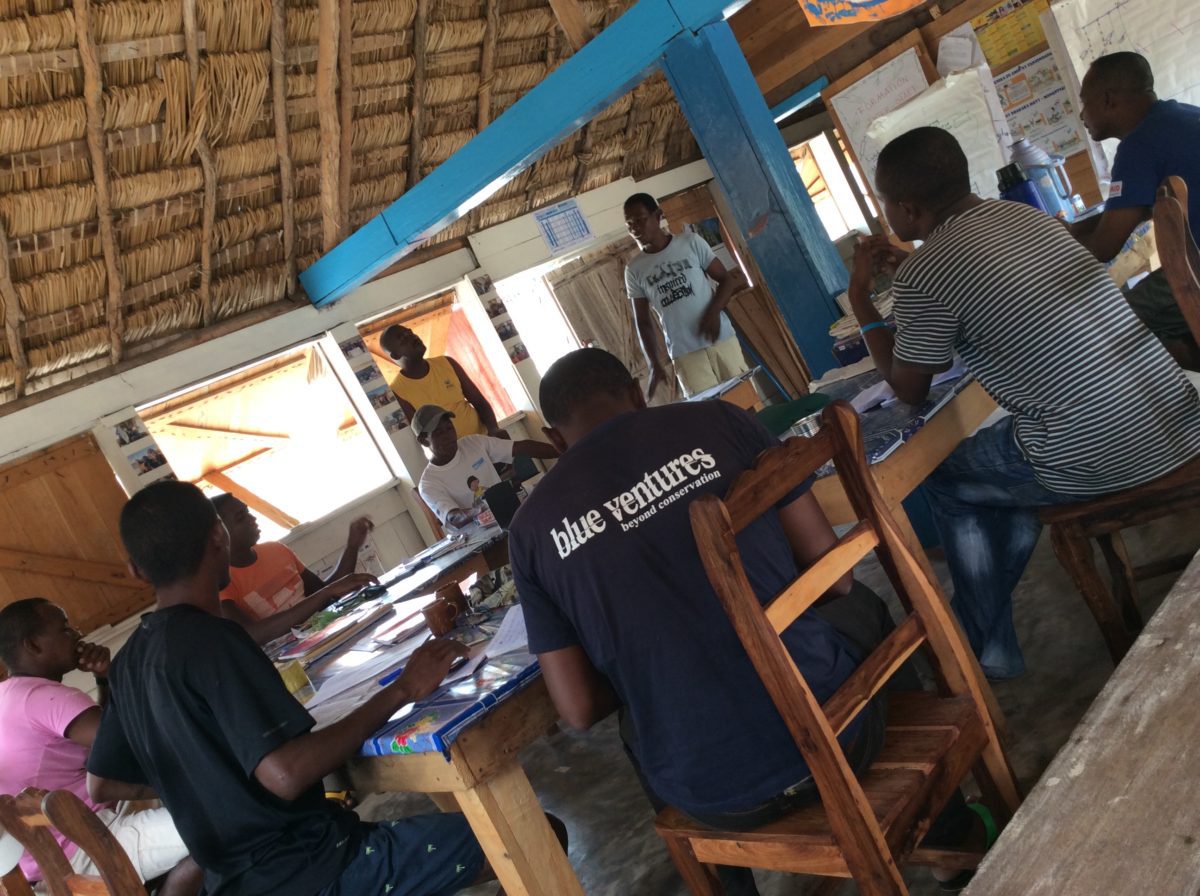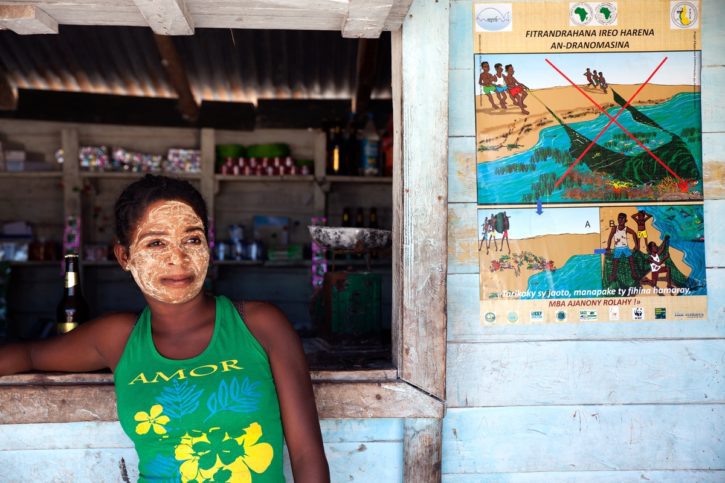As communities in Velondriake voted an unprecedented proportion of women and youth into the committee governing their locally managed marine area, our teams in Belo sur Mer and Maintirano have been busy training community health workers to engage more people in their villages in marine management – especially women!
Blue Ventures’ holistic approach to marine conservation integrates community-based health education and services with local marine management efforts and alternative coastal livelihood initiatives. This means that our teams include public health professionals, fisheries specialists, aquaculture technicians and community organisers. Bringing together such diverse talents and skills to enable interdisciplinary work isn’t always straightforward though…
We’ve come to value inter-staff training as a great way of exchanging knowledge across sectors and making sure that all team members are able to support each other’s work effectively. This means that when a fisheries specialist is holding a village meeting they can also be facilitating discussions around reproductive rights, or when a community health worker is assisting with a women’s group they can also be talking about marine management.
Over the past three months, our community health staff in Velondriake, Belo sur Mer and Maintirano / the Barren Isles have organised internal workshops to train our conservation colleagues in the fundamentals of our Safidy programme (Safidy means “the freedom to choose” in Malagasy; reflecting our long-standing commitment to reproductive rights).

Inter-staff training in Belo sur Mer
Photo: Pauline Marteil
In turn we’ve also been linking up with our conservation colleagues to train community health workers in the basics of marine management and Population-Health-Environment (PHE) linkages specific to their contexts, so that they’re able to support increased local engagement in conservation initiatives within their villages. We’ve even had Ministry of Health doctors requesting to attend these trainings, so that they can understand the links between human and ecosystem health!
These sessions have included PHE storytelling sequences, where community health workers are encouraged to narrate a story about a fictitious local family then identify overlap between health and environmental issues within the story. This has led these community health workers to develop highly practical strategies for addressing such interconnected challenges, based on their own visions for healthy communities and ecosystems.

Photo: Garth Cripps
We’re now supporting these community health workers to put in place their integrated community action plans – in particular for increasing women’s engagement in marine management, with the hope that women in Belo sur Mer and the Barren Isles will soon follow in the inspiring footsteps of their Velondriake sisters!

